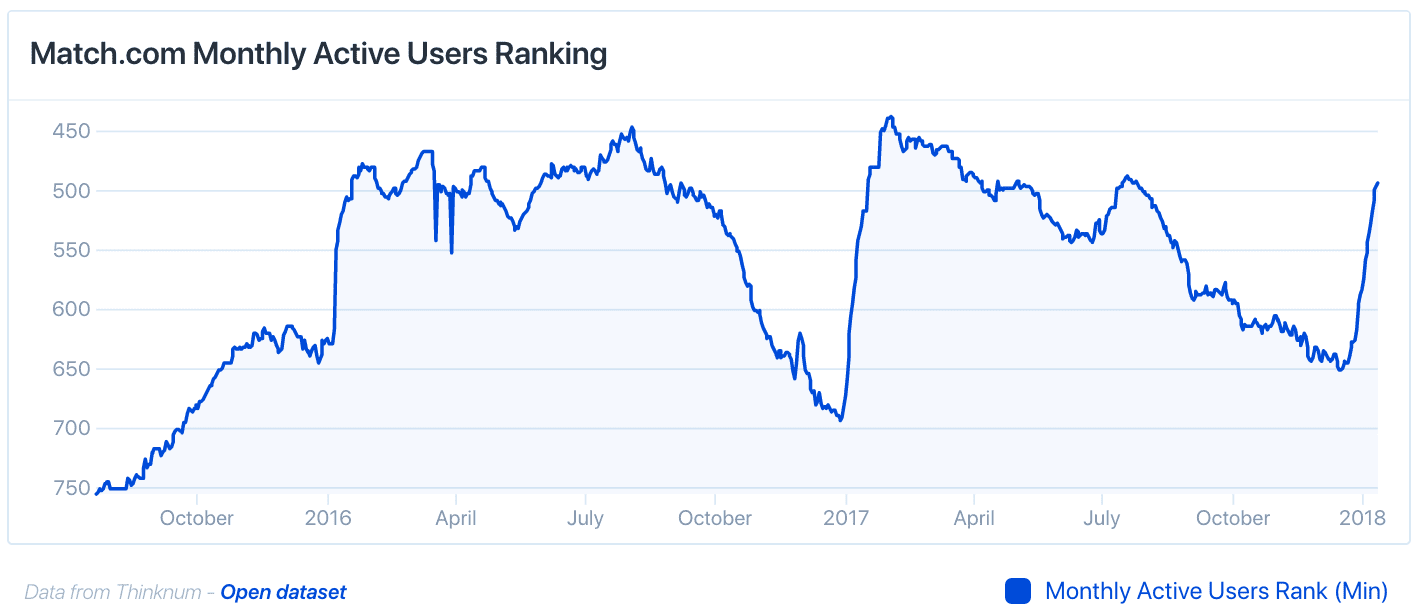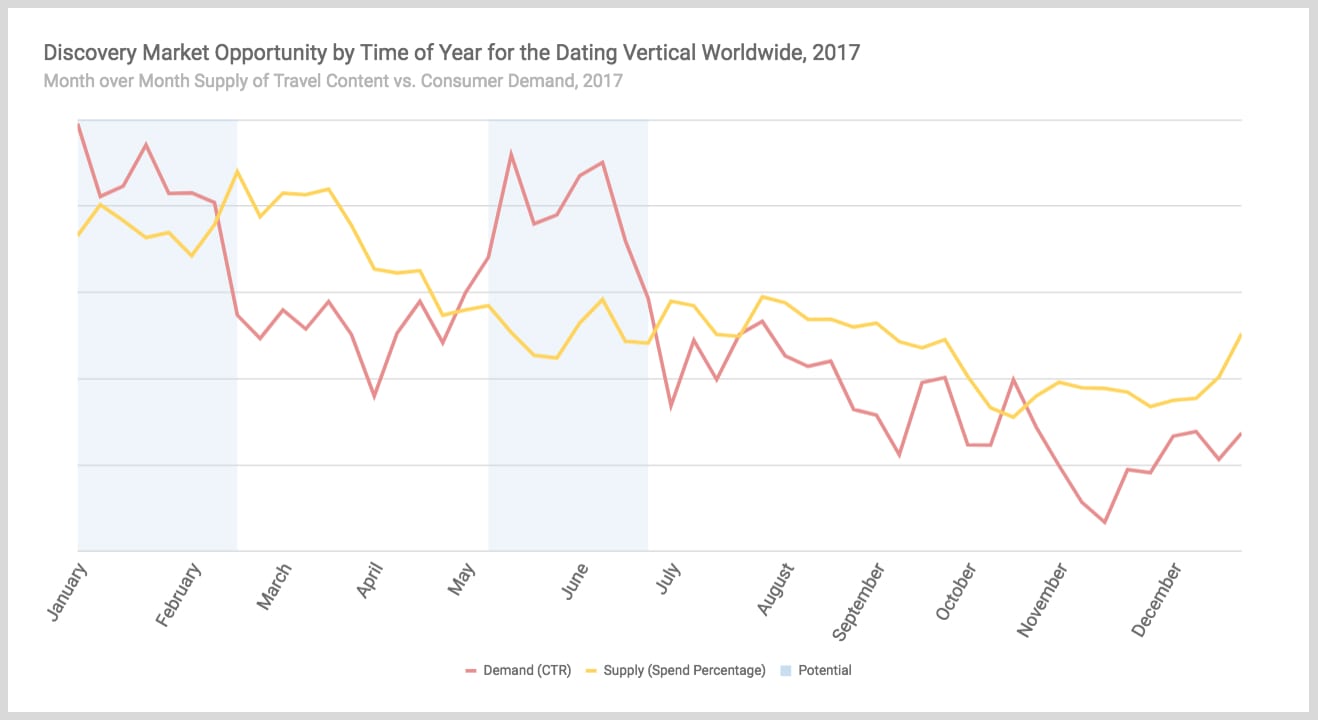People tend to associate weather discussions with boredom and dull conversation, but it actually has a huge influence on our internal romantic clocks. Online dating apps and websites become the #1 place where singles meet their soulmates, according to a recent Match.com study.
Marketers in the dating space, stand to attention—science tells us that seasons and weather have a huge impact on consumers’ moods and emotions which, in turn, affects how they behave.
We’ve got the data to help you strategize for the season with the highest amount of opportunity, as well as the best creative mix to build your campaigns.
You’ve heard Winter is the best time for dating campaigns, but it’s not alone.

When we try to figure out how to split our campaign budgets throughout the year, the first thing we do is look into the demand, or when people are most interested in dating.
Most experts claim that it’s during the winter. Thinknum, a publisher focusing on the “stories behind the numbers,” used Facebook login ranks for dating apps and found an uptick during this time of year. Match.com also reported that the most messages are sent and the most dates are planned between December 26th and January 7th.

We looked into over 69 billion impressions and 74 million clicks on dating-related content across the Taboola network to determine whether or not these trends hold for the open web and found that winter isn’t the only time of year that dating apps and content are in high demand.
This is the dating season marketers are missing out on.

We’re talking about opportunity for dating marketers based on two factors—the click-through-rate (CTR) of dating-related content, or demand for that content, and amount marketers are spending to distribute dating-related content, or the supply.
Demand is important, but when both demand for dating content and the amount the industry is advertising is high, it produces a competitive landscape.
If you take into account the supply, or how competitive the market is at that time of year, you’re able to determine the time of year with the highest potential to succeed.
Taking into consideration both supply and demand produced insight into the best season for your next dating campaign—with high demand and low supply.
We analyzed reading trends for dating content throughout 2017 and found a big missed opportunity for dating marketers between May and July.

There were two times of year in 2017 with the highest demand: the winter (January in particular) and the beginning of the summer.
Supply peaks in January in-line with the demand, whereas in the summertime, spend decreases dramatically in spite of demand.
Summertime is the season with the biggest opportunity for dating marketers.
Data-driven marketers who want to take advantage of this gap should make sure to test campaigns in the summertime to reach consumers hungry for dating content.
This is how to build the best dating campaign creative.

Whether you’re marketing for a huge site like eHarmony or a smaller site like JDate, one of the other crucial factors that can make or break your campaign is the image type.
You should promote different types of images to grab the most attention, and to get the most relevant people to click. We turned to our top performing dating-related items to determine which kinds of images yield the most clicks.
- Images of women perform better than images of men.
- Close-ups perform better than pictures taken from a distance.
- Images of one person perform better than images of a couple.
- The top performing facial expression is a smile without teeth.
- Eye contact is crucial; make sure to choose images of people looking directly at the camera.
- Natural images of real people performed better than “staged” images.
We started this dive into trends for the dating industry with the time of year that yields the highest potential for marketers, and ended with creative insights for you to build the most engaging campaign.
One key thing to keep in mind—just because something worked well for everyone else doesn’t mean it’ll work well for your respective brand. Keep A/B testing different creatives, different audiences and different content pieces to ensure your campaign’s success.
Check out our other consumer data insights on for the finance and travel verticals and for back-to-school season.